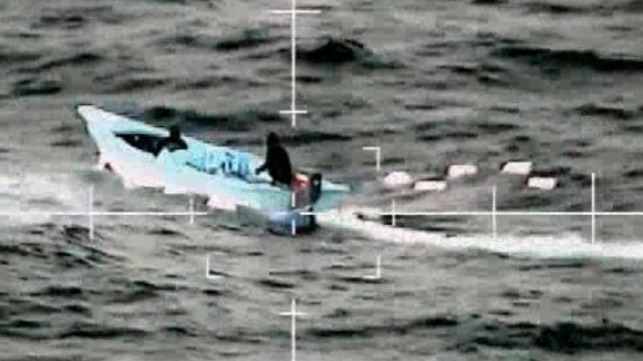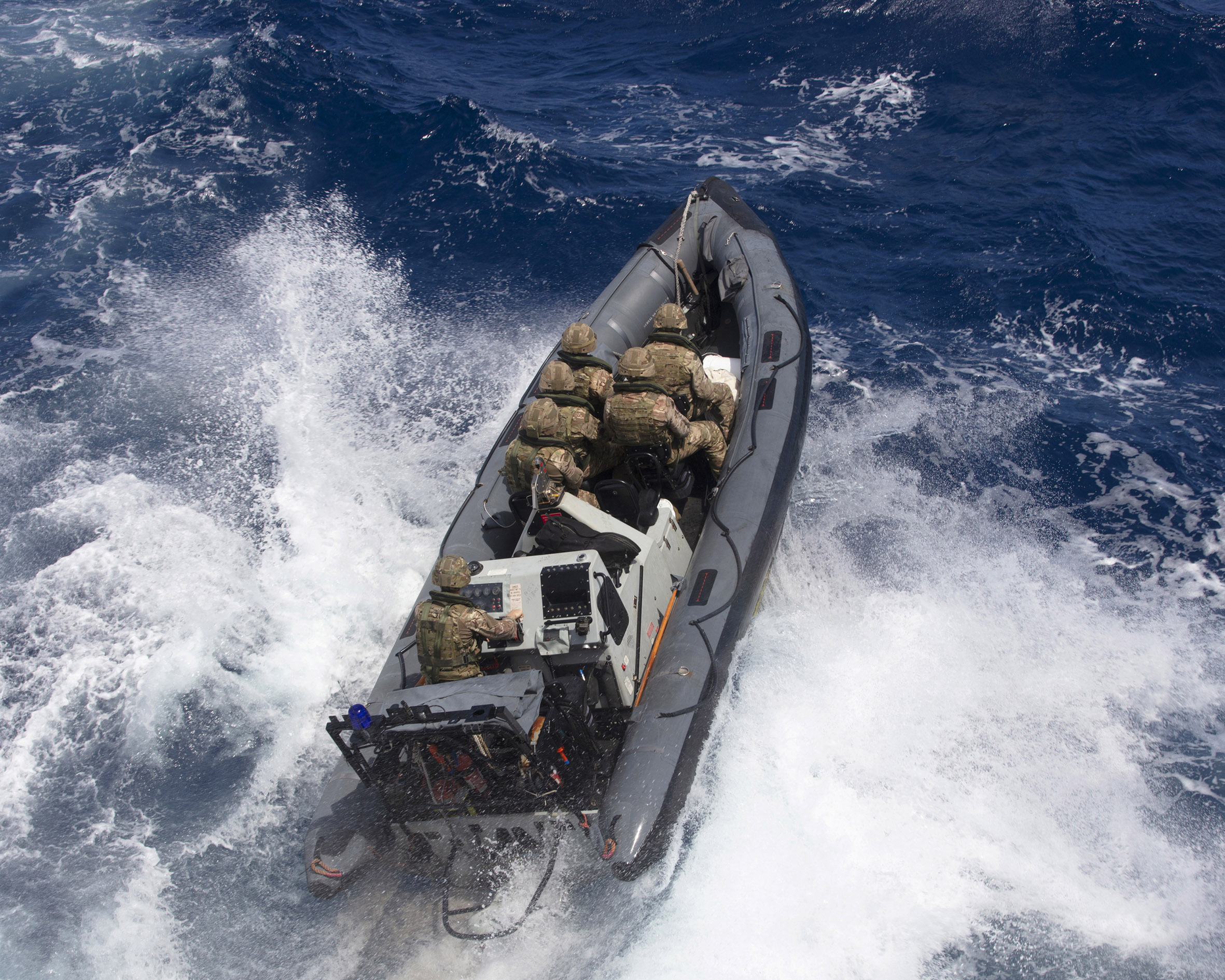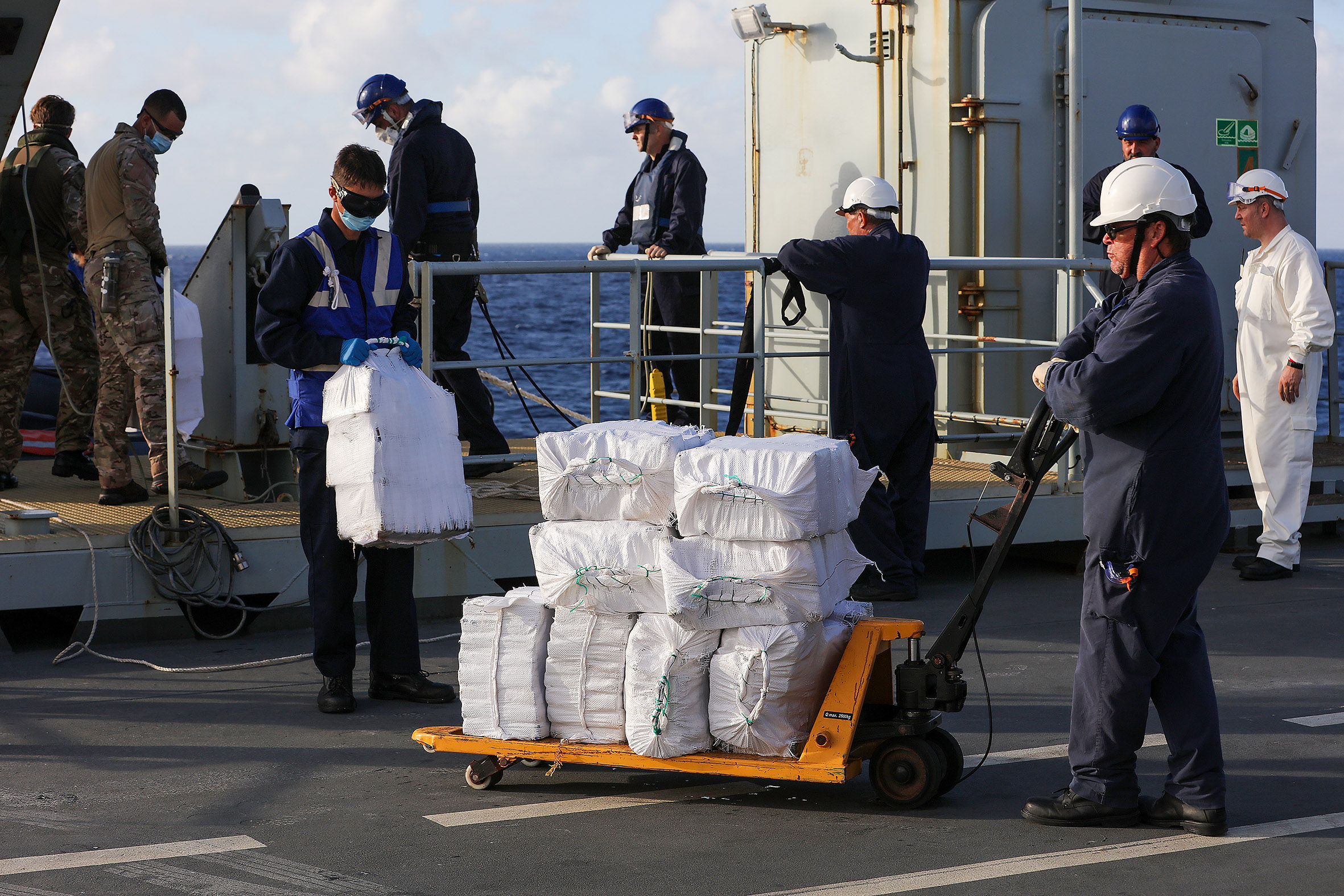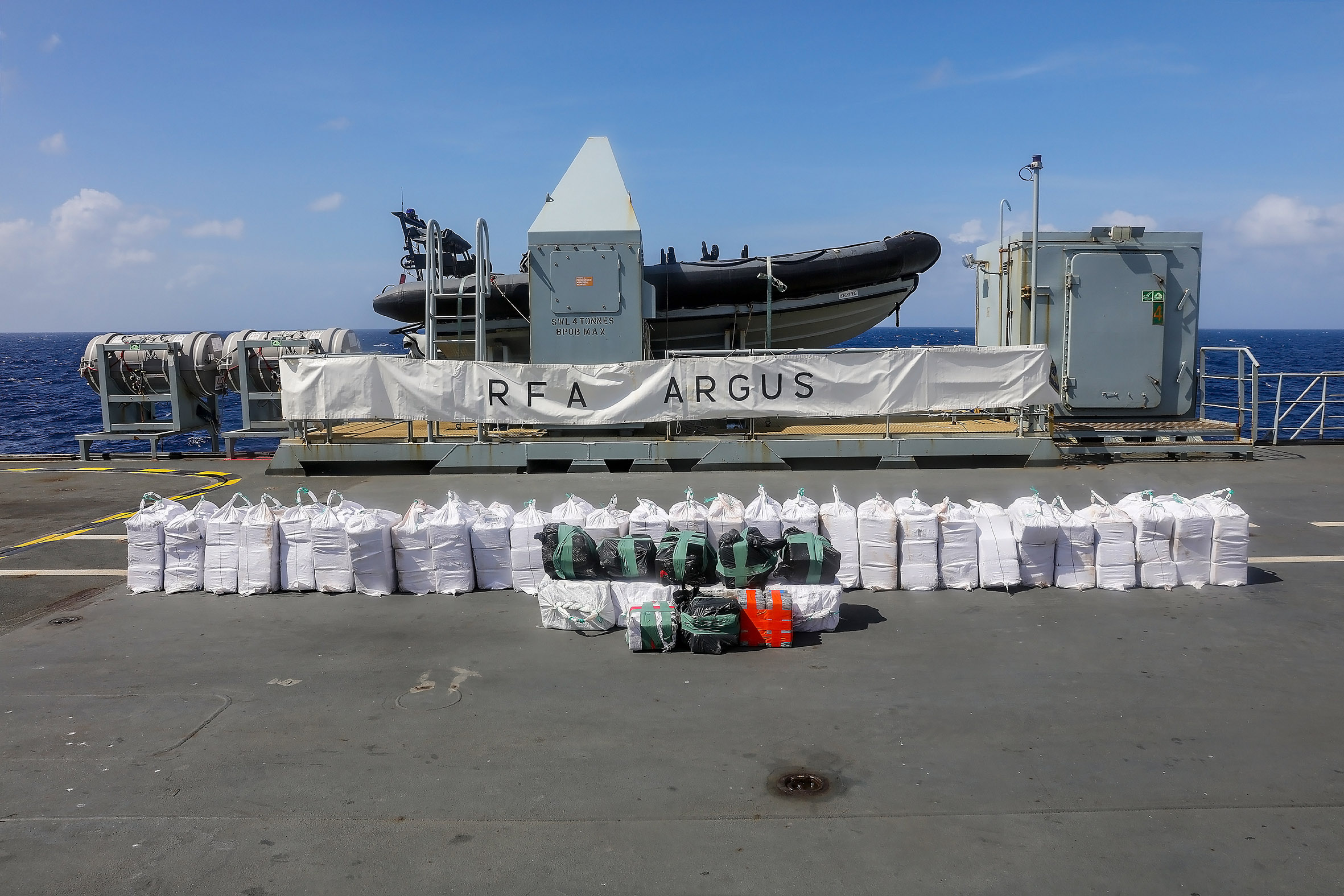RFA Argus Seizes Cocaine Shipments Worth $160 Million

The Royal Navy amphib RFA Argus has carried out five cocaine busts in seven weeks in Caribbean waters. Argus, which forward-deployed to the region for hurricane relief readiness earlier this year, has been working with U.S. Navy, U.S. Coast Guard and Royal Netherlands Navy forces to intercept drug-runners, with considerable success.
In her latest two busts, Argus intercepted several tonnes of cocaine with a UK street value estimated at $160 million. During the first incident, the drug runners dumped their cargo overboard and sent it to the bottom. In the second, more than one tonne of cocaine was recovered from the sea and from the smugglers' boat.
In the most recent bust, which resulted in a haul of 1,085kg of cocaine, Argus launched her Wildcat helicopter to search for a suspected drug runner.
The aircrew quickly found the smugglers' boat, forcing it to stop before a RIB carrying Royal Marines and a U.S. Coast Guard Law Enforcement Detachment arrived. Packages of drugs had been thrown overboard during the chase, so a Merlin helicopter and another boat were launched by Argus to recover the discarded bags.



Images courtesy Royal Navy
Several days before, Argus’ Wildcat intercepted a suspected smuggling speedboat, and the traffickers threw packages of drugs overboard as they tried to outrun the helicopter. A RIB with a boarding team overtook the boat and captured it. Argus estimated that the suspects had off-loaded about half a tonne of cocaine before they were boarded.
The two busts took place before Argus was dispatched to Honduras to support relief efforts in the wake of Hurricane Eta.
Argus has now carried out five counter-narcotics operations since September, and her escort HMS Medway has two to her name. Between the two, the vessels have seized 4.5 tonnes of cocaine since early September. The combined value is approximately $485 million (UK street price).
“It’s at a time like this, when all the elements in a ship as capable as RFA Argus come together to achieve such success, that one feels proud to be her commanding officer,” said Captain Kevin Rimell RFA. “The professionalism and resourcefulness of both the UK and U.S. assets on board have delivered success and proven we work as one team.”

that matters most
Get the latest maritime news delivered to your inbox daily.
The UK has a direct interest in narcotics interdiction in the Caribbean because the majority of the traffic is ultimately bound for overseas markets, according to research based on U.S. trafficking and consumption data. The majority of shipments depart Colombia en route to Mexican and Central American ports, where they are intermingled with legitimate cargo in shipping containers and exported to Europe, Australia and other locales where cocaine prices are higher than in the United States.
"Cocaine traffickers operating in Mexico and Central America may be working in the United States’ proverbial back yard, but their distribution networks reach much more widely than they used to. The U.S. is no longer cocaine’s true north," writes Kendra McSweeney, professor of geography at Ohio State University.
